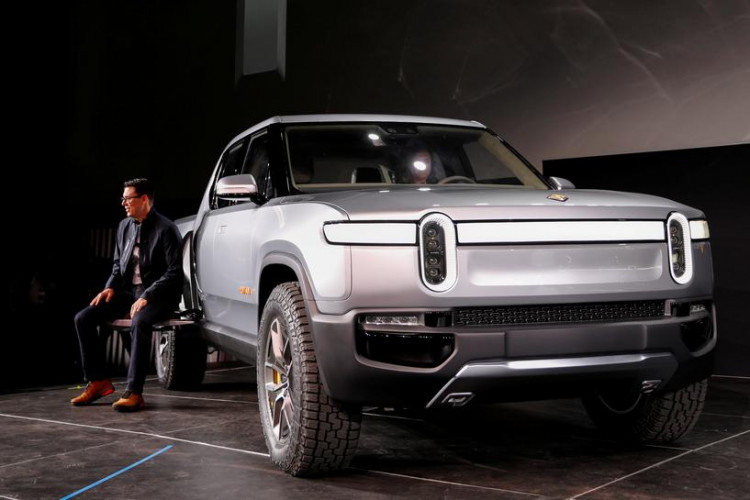Rivian Automotive, the electric vehicle (EV) startup backed by Amazon, has reduced its full-year production forecast, citing supply chain disruptions and a shortage of key components. The company also missed third-quarter delivery expectations, causing its stock to drop by about 4% in early trading on Friday. Rivian now expects to produce between 47,000 and 49,000 vehicles in 2024, a sharp decrease from its earlier target of 57,000 units.
The production cut comes as Rivian faces growing challenges in meeting demand amid a parts shortage that has impacted the company's R1 SUV, R1T pickup trucks, and its commercial delivery vans. According to Rivian, the shortage began in the third quarter and has worsened in recent weeks, affecting its in-house motors. "This supply shortage impact began in Q3 of this year, has become more acute in recent weeks and continues," the company said in a statement.
Despite the disruption, Rivian reaffirmed its delivery outlook for 2024, expecting to deliver between 50,500 and 52,000 vehicles, a low single-digit increase compared to last year. However, this is still below the 53,491 deliveries that analysts had forecast, according to Visible Alpha. In the third quarter, Rivian produced 13,157 vehicles at its manufacturing plant in Normal, Illinois, but only delivered 10,018 vehicles-well short of the 13,000 deliveries expected by analysts.
Rivian CEO RJ Scaringe had previously alluded to supply chain challenges at a Morgan Stanley investor conference in September, noting that the company had encountered issues with some suppliers, especially regarding components for its in-house motors. "We've had a couple of supplier issues of recent that have been challenging, and in particular, a few issues around our in-house motors with some of the components that have been painful and a reminder of just how a multi-tiered supply chain can be difficult," Scaringe said.
The company's stock has dropped more than 50% in 2024 as it grapples with slowing demand for electric vehicles and a rising cash burn. Rivian, like other automakers, has faced a slowdown in EV demand as high interest rates and economic uncertainty drive consumers toward cheaper hybrid models. Even market leader Tesla reported lower-than-expected deliveries for the quarter, signaling broader challenges in the EV market. "The cut to its production guidance was substantial, and it is likely to raise a variety of questions surrounding Rivian's ability to turn the corner towards generating a gross profit," said Garrett Nelson, senior equity analyst at CFRA Research.
Rivian, however, remains optimistic about achieving profitability by the end of the year. The company temporarily shut down its Illinois plant for three weeks earlier this year to streamline its manufacturing processes and reduce costs. Lowering production costs is critical for the company as it navigates the demand slowdown and ramps up production of its R1 models, while preparing for the launch of its smaller R2 models in 2026.
In an effort to shore up its finances, Rivian has pursued strategic partnerships. Earlier this year, German automaker Volkswagen announced plans to invest up to $5 billion in Rivian as part of a joint venture that could help boost Rivian's cash reserves and support its goal of achieving positive cash flow. This partnership is seen as a crucial lifeline as Rivian looks to weather the current industry challenges.
The supply chain issues Rivian is facing are not unique to the company but reflect a broader trend impacting the global auto industry. Many automakers have struggled with parts shortages, particularly for semiconductors and other electronic components, which have slowed production and forced companies to revise their forecasts. For Rivian, the parts shortage and weaker-than-expected EV demand are hitting the company at a critical juncture as it works to scale its operations and prove its long-term viability.
Looking ahead, Rivian's ability to overcome its supply chain challenges and increase production will be key to regaining investor confidence. The company's revised forecast suggests that it will need to solve its production bottlenecks quickly to avoid further disruptions. Analysts are closely watching whether Rivian can meet its delivery goals for the remainder of the year, as any further shortfalls could lead to additional downward pressure on its stock.





